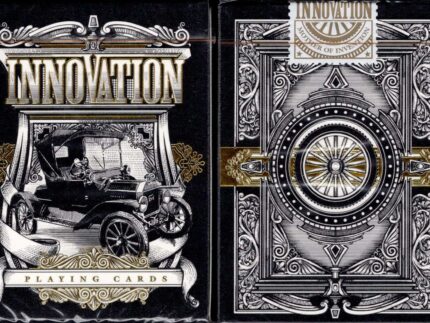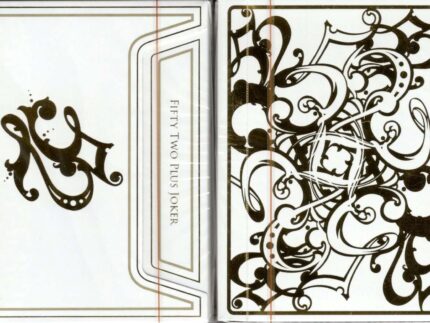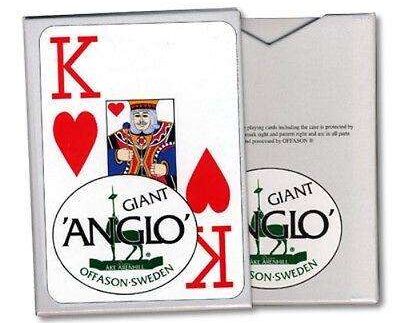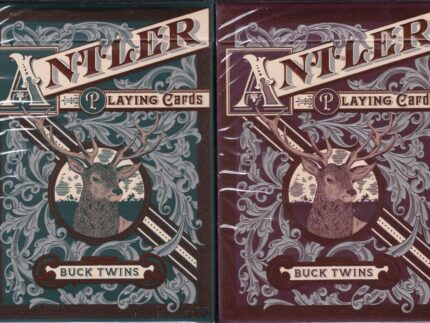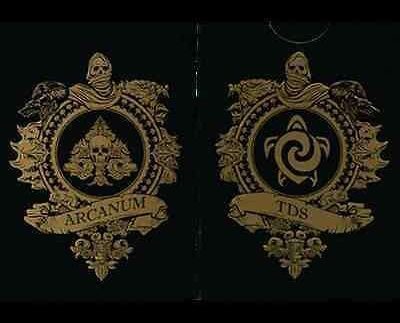Innovation Signature Edition Playing Cards Deck LPCC
Signature Edition
The last half of the 18th century was littered with minds that immeasurably stood out from the rest, inventors and innovators that supercharged society to new heights launching mankind into the new century. Represented here are the royalty of Innovation, categorized into four suits: Illumination, Transportation, Communication, and Aviation.
Features:
- Printed by the Legends Playing Card Company
- This will be a Limited Edition. Only 1000 Signature Decks will be printed
- Each court card, Ace and Jokers will have original illustrations, capturing the feel of the era.
- The Cards will be printed on the “Legends” Classic Finish, which is the highest quality card stock.
- The Tuck Case will be made with Premium Matte Card Stock Box, fully embossed and foiled, combined with Gold Metallic Ink.
- Unique Back Design
Ace of Spades: Depicts the Model T Ford.
The Model T, also known as Tin Lizzie or just plain “T,” was one of the greatest innovations in transportation the world has ever known. Not only did its design build upon the achievements of the industry leaders, but it was accessible to the common man.
King of Spades: Henry Ford
Because he created an automobile nearly any American could own, the Model T – which in 1922 were driven by half of all drivers in America, and the credit he is given for the popularity of the assembly line it has been said that Henry Ford “[put] the World on Wheels.”
Queen of Spades: Mary Anderson
Men laughed at Mary Anderson. They made fun of her and her silly little device. But in 1905 they stopped laughing when she was granted U.S. Patent No. 743,801 for her “window cleaning device for electric cars and other vehicles to remove snow, ice or sleet from the window.” Yes the windshield wiper was invented by a Southern Belle named Mary Anderson.
Jack of Spades: Karl Benz
Karl Benz, was a German engine designer and car engineer, generally regarded as the inventor of the first automobile powered by an internal combustion engine, and together with Bertha Benz, pioneering founder of the automobile manufacturer Mercedes-Benz.
Ace of Diamonds: The Wright Flyer 1
The first flight, by Orville at 10:35 am, of 120 feet (37 m) in 12 seconds, at a speed of only 6.8 miles per hour (10.9 km/h) over the ground, was recorded in a famous photograph. The next two flights covered approximately 175 and 200 feet (53 and 61 m), by Wilbur and Orville respectively. Their altitude was about 10 feet (3.0 m) above the ground.
King of Diamonds: Wilbur Wright
Wilbur Wright was the oldest of the two Wright brothers, together invented the world’s first successful airplane. The brothers successfully conducted the first free, controlled flight of a power-driven airplane on December 17, 1903.
Queen of Diamonds: Amelia Mary Earhart
(July 24, 1897 – disappeared July 2, 1937) was an American aviation pioneer and author. Earhart was the first female aviator to fly solo across the Atlantic Ocean. She received the U.S. Distinguished Flying Cross for this record. She set many other records, wrote best-selling books about her flying experiences and was instrumental in the formation of The Ninety-Nines, an organization for female pilots.
Jack of Diamonds: Orville Wright
Orville Wright was the youngest of the two Wright brothers, together invented the world’s first successful airplane. The brothers successfully conducted the first free, controlled flight of a power-driven airplane on December 17, 1903.
Ace of Clubs: The Light Bulb
In addressing the question of who invented the incandescent lamp, historians Robert Friedel and Paul Israel list 22 inventors of incandescent lamps prior to Joseph Swan and Thomas Edison. They conclude that Edison’s version was able to outstrip the others because of a combination of three factors: an effective incandescent material, a higher vacuum than others were able to achieve (by use of the Sprengel pump) and a high resistance that made power distribution from a centralized source economically viable.
King of Clubs: Thomas Alva Edison
Thomas Alva Edison was an American inventor and businessman. He developed many devices that greatly influenced life around the world, including the phonograph, the motion picture camera, and a long-lasting, practical electric light bulb. Dubbed “The Wizard of Menlo Park”, he was one of the first inventors to apply the principles of mass production and large-scale teamwork to the process of invention, and because of that, he is often credited with the creation of the first industrial research laboratory.
Queen of Clubs: Ida Henrietta Hyde
The smallest functional unit of an organism is a cell. And, though microscopic, there is valuable information hidden inside these small structures. We cannot see that information with the naked eye. But when a woman, who burrowed her way into the science arena, came up with a microscopic version of the electrode, it revolutionized neurophysiology and illuminated the possibility of research on a cellular level. An electrode is an electrical conductor used to make contact with non-metallic surfaces. The invention of amicroelectrode, that could stimulate a living cell and record the electrical activity within the cell without damaging it, has changed the face of nerve and tissue understanding and research.
Jack of Clubs: Nicola Tesla
Little did Duka Tesla know that her fourth of five children would harness the power of Niagra Falls, work for-and then against- Thomas Edison, create the A.C. induction motor that would be used all over the world in household (and industrial) appliances, conceive the polyphase alternating current system, win the “War of Currents” over Thomas Edison, and through his inventions “light” the entire planet we call earth.
Ace of Hearts: The Invention of the TelephoneOn June 2, 1875, Watson accidentally plucked one of the reeds and Bell (Alexander Graham Bell), at the receiving end of the wire, heard the overtones of the reed; overtones that would be necessary for transmitting speech. That demonstrated to Bell that only one reed or armature was necessary, not multiple reeds. This led to the “gallows” sound-powered telephone, which could transmit indistinct, voice-like sounds, but not clear speech.
King of Hearts: Alexander Graham Bell
(March 3, 1847 – August 2, 1922)was an eminent Scottish-born scientist, inventor, engineer and innovator who is credited with inventing the first practical telephone.
Queen of Hearts: Ada Lovelace
Augusta Ada Byron and now commonly known as Ada Lovelace, was an English mathematician and writer chiefly known for her work on Charles Babbage’s early mechanical general-purpose computer, the Analytical Engine. Her notes on the engine include what is recognized as the first algorithm intended to be carried out by a machine. Because of this, she is often described as the world’s first computer programmer.
Jack of Hearts: Samuel Morse
(April 27, 1791 – April 2, 1872) was an American painter and inventor. After having established his reputation as a portrait painter, in his middle age Morse contributed to the invention of a single-wire telegraph system based on European telegraphs. He was a co-developer of the Morse code, and helped to develop the commercial use of telegraphy.


